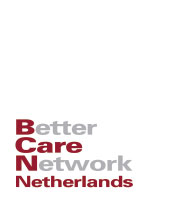Europe’s children in care – what role for the EU?
Eurochild launched first ever survey to compare the situation
in 30 European countries on children in alternative care
Co-hosted by MEPs Corina Cretu and Roberta Angelilli, Eurochild launched yesterday (27 January 2010) in the European Parliament in Brussels its trans-European survey on children in alternative care. It’s the first time such a comprehensive survey has been compiled, covering 26 EU Member States.
Approximately 1% of children in the EU are living in alternative care - including residential, community and family-based care – that is about one million children.
Whilst placement in an institution is widely recognised as the solution of last resort after family support services and family-based care, the number of children in institutions is stable or even rising in several EU countries.
Furthermore the practice of placing children under the 3 in institutions still exists in several Member States, despite a consensus that placing infants in institutional care for several months causes irreversible damage to brain development.
It is clear that certain vulnerable groups are heavily over-represented in care statistics. In Bulgaria, Roma children account for approximately 45% of children in care. In the Czech Republic in 2007 24% of children in baby homes were Roma. The institutionalisation of children with disabilities is also a major concern in many countries of the EU.
Although poverty and material deprivation cannot be a reason for placement of a child, it is clearly an underlying cause in many countries. Indeed, the lack of data surrounding the links between poverty, social exclusion and placement of children obscures how poverty features in the decisions that result in placement, and how the most appropriate prevention approaches can be developed.
Jana Hainsworth, Eurochild’s Secretary General, stated:
“We know the root cause for many children entering the care system is poverty and social exclusion. High level political commitment to end child poverty must mobilise more resources for early intervention and prevention, strengthening families and access to quality services.”
The available statistics provide clear evidence that children who have been in care – and in particular in residential care settings – are more likely to end up homeless; to commit crimes; to have children before the age of 20 themselves; and to have their own children taken into care.
MEP Richard Howitt (PASD, UK) said:
“I’m really pleased that this survey has come out today. Having up-to-date evidence is very important to give us the spur and incentive to move on.
And clearly we need a wider number of people both, in the parliament and amongst the NGOs, to engage in this issue.”
Armed with this statistical resource, gathered through a survey of Eurochild members throughout 2009, Eurochild is calling for:
· EU leadership to adopt common definitions and improve the collection of comparable data on children in alternative care
· Immediate action to support the de-institutionalisation of children
· A ban on the institutionalisation of babies (0-3 years)
· Greater emphasis on training and recognition of the children’s workforce
· Political commitment to end child poverty
· Support for the application of the UN Guidelines for the Alternative Care of Children across all EU member states
· Direct involvement of children, young people and their families, both in decision-making processes that affect them directly and in the development of alternative care policies and services
Meer informatie:
Europa’s kinderen in alternatieve opvang: welke rol heeft de EU?
ingevoerd op 28-1-2010
Overig nieuws
26-01-2026 - Mbo-stages in kindertehuizen niet langer toegestaan
13-01-2026 - Podcast over zorgverlater Surja
08-01-2026 - Themanummer tijdschrift over familieversterking
05-01-2026 - White paper UNICEF over gezinsondersteuning
23-12-2025 - Publicatie UNICEF over ouderschapsondersteuning
23-12-2025 - Casestudie over transitie naar familiegerichte zorg
09-12-2025 - Oproep aan Prins Harry en Meghan: kinderen horen niet in een weeshuis, maar bij familie
08-12-2025 - Rapport over seksuele uitbuiting van straatkinderen
07-12-2025 - Impact van twintig jaar Lumos
01-12-2025 - Seksueel misbruik en uitbuiting onder zorgverlaters
26-11-2025 - Familie re-integratie van straatkinderen in Zimbabwe
14-11-2025 - Holistische gezinshereniging in Zuid-Afrika
13-11-2025 - Transitie van residentiële zorg naar gemeenschapsgerichte ondersteuning voor kinderen met een beperking
29-10-2025 - Podcast over de gevaren van voluntourism
 | NIEUWS |  |
Zoeken in nieuws
 |  |
 | Deel deze pagina |  |
 |  |
PrivacyverklaringBetter Care Network Netherlands vindt uw privacy belangrijk. Wij verwerken persoonsgegevens in overeenstemming met de geldende privacywetgeving. In onze privacyverklaring staat precies wat u van ons kunt verwachten en aan welke regels we ons houden. |
|
|
Copyright 2026 - Better Care Network Netherlands



